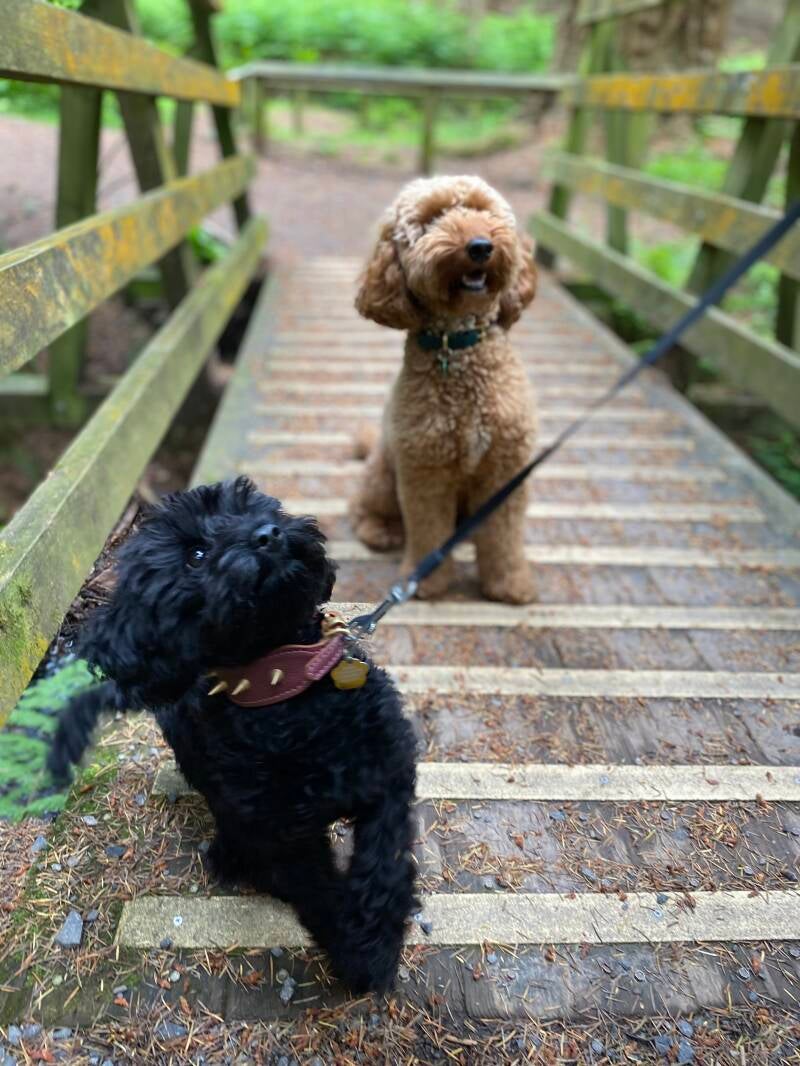some helpful tips for first time dog owners
🐾 Basic Care Tips for Dogs
1. Proper Nutrition
-
Quality food: Feed age-appropriate, balanced dog food. Puppies, adults, and seniors all have different nutritional needs.
-
Avoid human food: Many human foods (e.g., chocolate, grapes, onions) are toxic to dogs.
-
Fresh water: Always have clean water available.
2. Exercise & Mental Stimulation
-
Daily walks: Essential for physical health and mental stimulation.
-
Playtime: Toys, fetch, tug-of-war, and puzzle games help keep them sharp and engaged.
-
Training: Short daily training sessions improve behavior and strengthen your bond.
3. Regular Grooming
-
Brushing: Depending on breed, this can be daily or weekly to reduce shedding and matting.
-
Bathing: Once every 1–3 months (or more if they’re very active or get dirty).
-
Nail trimming: About once a month or as needed to prevent overgrowth and discomfort.
-
Ear cleaning: Clean weekly to prevent infections, especially in floppy-eared breeds.
4. Healthcare
-
Vet visits: Annual checkups, vaccinations, and parasite prevention (fleas, ticks, worms).
-
Dental care: Brush their teeth several times a week or use dental chews to prevent gum disease.
-
Spay/neuter: Helps prevent certain health issues and unwanted litters.
5. Safe Environment
-
Dog-proof your home: Keep harmful items (cleaners, medications, small toys) out of reach.
-
Comfortable sleeping area: Provide a cozy bed in a quiet spot.
-
-
ID & microchip: Ensure your dog wears a collar with an ID tag and has a registered microchip.
6. Love and Socialization
-
Social interaction: Dogs need regular social time with humans and, if possible, other dogs.
-
Affection: Regular cuddles, praise, and positive reinforcement go a long way.
-
Alone time: Train them to be comfortable alone to prevent separation anxiety.


Ways you can stimulate your dog
🧠 Mental Stimulation
-
Puzzle Toys & Food Dispensers
These challenge your dog to think and work for treats, mimicking natural foraging behavior. -
Training Sessions
Teach new tricks or reinforce basic commands. Just 10 minutes a day keeps their mind sharp. -
Scent Games / Nose Work
Hide treats or toys around the house or garden and let them sniff them out—dogs love using their noses! -
Interactive Toys
Toys that make noises, move, or offer unexpected rewards keep dogs engaged and curious. -
Name Their Toys
Teach your dog the names of their toys. They can learn to fetch specific ones on command.
Ways to correctly socialise your dog
1.Start early but never to late
The ideal socialisation window is between 3–14 weeks of age, but adult dogs can still learn—just go slower and be patient.
👥 2. Expose Them to a Variety of People
Let your dog meet people of different ages, sizes, and appearances. Calm, positive interactions help reduce fear or anxiety.
🐕 3. Arrange Dog-to-Dog Meetups
Start with calm, friendly dogs. Keep meetings short and positive, using treats and praise. Always supervise closely.
🏞️ 4. Introduce New Environments Gradually
Visit parks, cafés, quiet streets, or pet-friendly shops. New sights, sounds, and smells help build your dog’s confidence.
🐶 5. Use Positive Reinforcement
Reward calm, friendly behavior with treats and praise. Never force interactions—let your dog approach at their own pace.
🚶 6. Enroll in Group Training or Puppy Classes
These offer safe, structured settings for learning and socialising with both humans and other dogs.
🐕🦺 7. Watch Their Body Language
Look for signs of stress (like yawning, lip licking, or tucked tail) and remove them from overwhelming situations.
🔁 8. Be careful Consistent and Ongoing
Socialisation isn’t a one-time event—it should continue throughout your dog’s life to reinforce good behavior.





